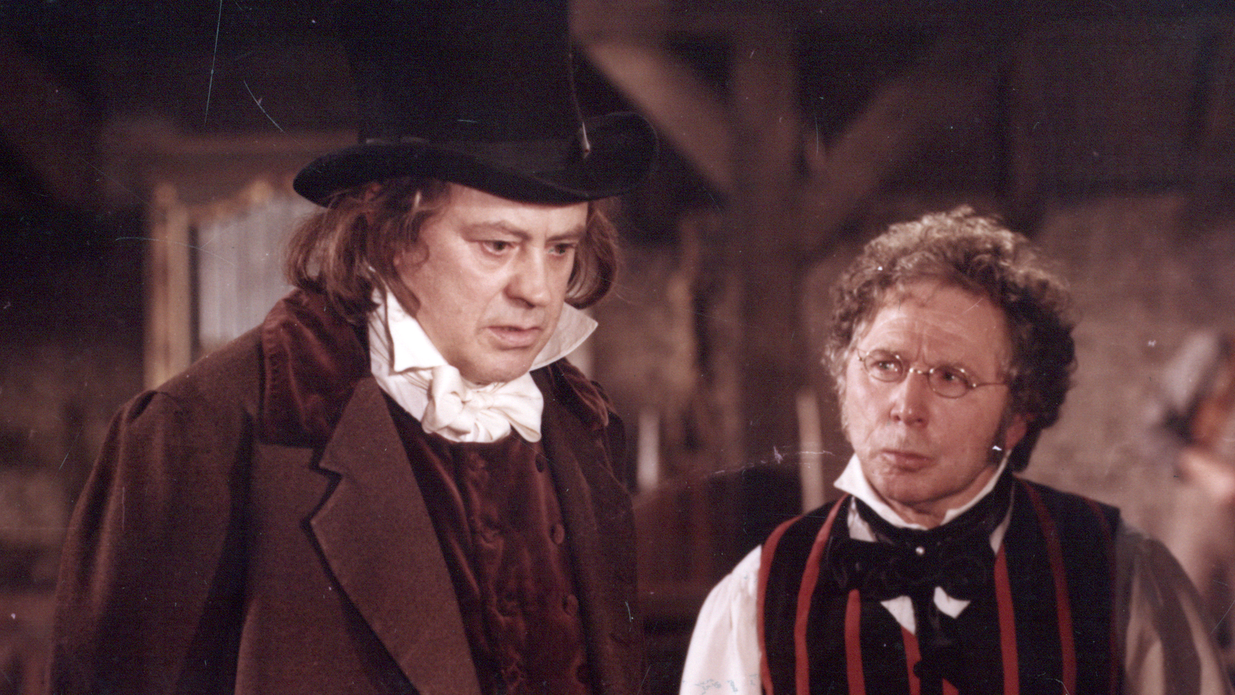Moved by Sound
The Cinema and Ludwig van Beethoven

Beethoven. Tage aus einem Leben (DDR 1976)
What does cinema have to do with the 250th commemorative year of Ludwig van Beethoven? Wasn't it film that sold off his work, destroyed the Moonlight Sonata and the first movement of the 5th Symphony through constant repetition, and degraded Beethoven's compositions to barely audible background noise?
Ever since the 100th anniversary of his death, for which an elaborate silent film biopic with Fritz Kortner in the leading role was released, Beethoven anniversaries seem to be unable to exist without the cinema, just as, conversely, film is unable to shake off its dubious relationship with Beethoven's music. The retrospective Moved by Sound: The Cinema and Ludwig van Beethoven shows, however, that the cinematic appropriation of Beethoven is only in part the story of an unfortunate misalliance.
This film-historical journey leads to well-known auteur films as well as forgotten curiosities, alternating between feature, documentary and experimental film, and taking into account the concert film, a genre that has rarely been taken seriously. Many of the selected works seem like interpretations of Beethoven’s compositions, some of them reminding us of Samuel Fuller's dictum: ‘Beethoven draws me into the imaginary through his sense of timing.’ The film director becomes a listener who translates his impressions and fantasies into moving images. At times, directors such as Agnieszka Holland or Werner Schroeter allow themselves to engage in such experimental virtuosity without fear of disrespecting the work that Beethoven's music becomes perceptible in a completely new way. At the same time, film has become an archive of over 100 years of Beethoven interpretations. From the very beginning, his music has accompanied the cinema, and it is evident that film history has long since become part of the living existence of Beethoven's cosmos of work.
And Beethoven himself? Biopics are fond of plunging into the prominent stages of the musician's biography: his dedication to the enigmatic "immortal lover,” his relationships with Giulietta Guicciardi and Therese Brunsvik, his deafness, the tormented housekeepers, Beethoven's crushing love for his nephew Karl...
The biopics in our film series, on the other hand, follow a train of thought that was articulated in the program booklet of the National Film Theatre in London introducing Abel Gance's magnificent Un Grand Amour de Beethoven: “When he learned that his beloved was marrying another, Beethoven probably did not hide in the gallery of the church where the ceremony was to take place, in order to stun her with the funeral march from Eroica played on the organ. If he didn't do it, he should have done it, though, because it simply makes a great scene." Herein lies the fascinating thing about the encounter between film and Beethoven: cinema deals with the composer's legacy in a much more independent and radical way than literature and music studies often do. Instead of being frozen by reverence, films let themselves be moved by sound. (Stephan Ahrens)
The retrospective Moved By Sound: The Cinema and Ludwig van Beethoven, curated by Stephan Ahrens, is a project within the framework of "BTHVN 2020,” supported by the Federal Government Commissioner for Culture and the Media and under the patronage of the Federal President. The film series is accompanied by an anthology of the same name.